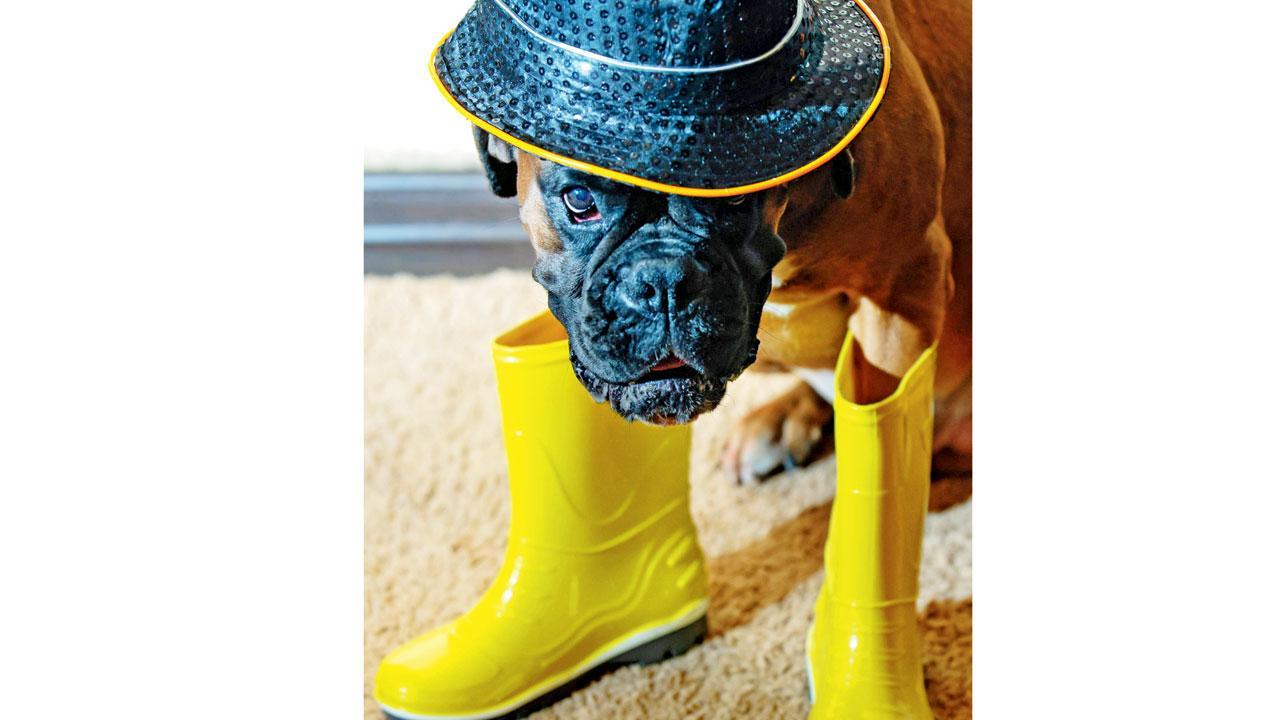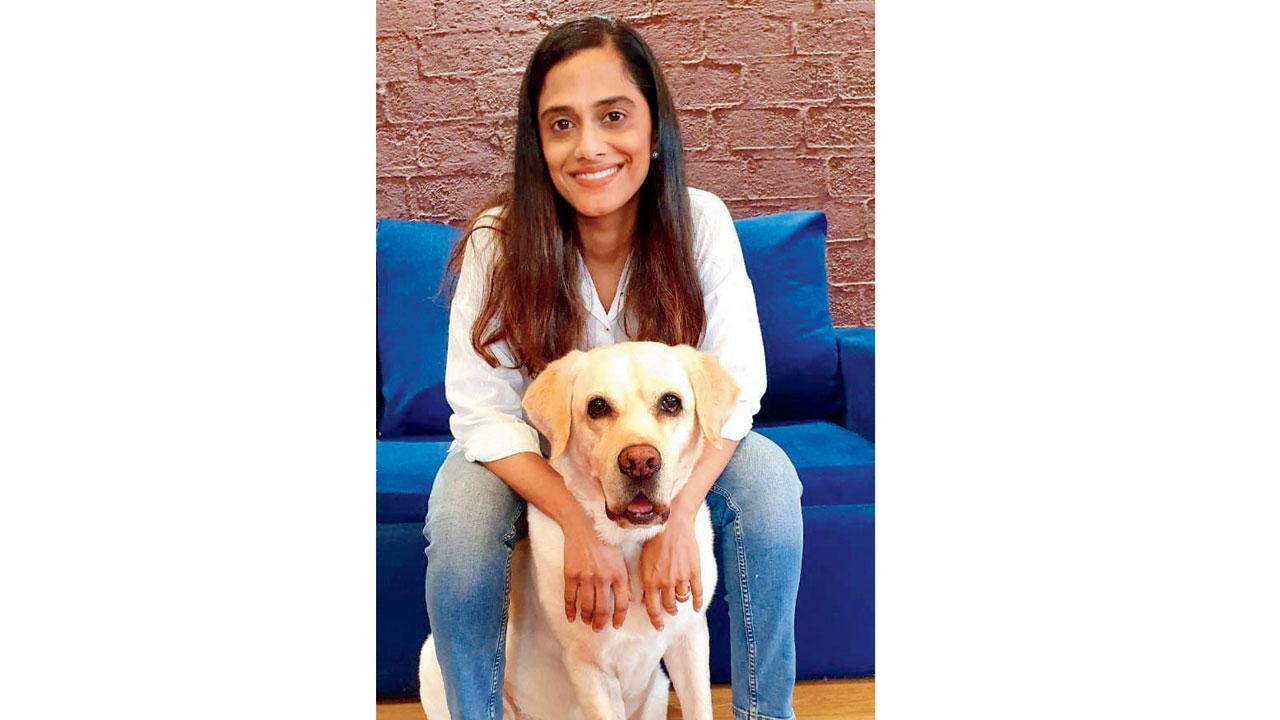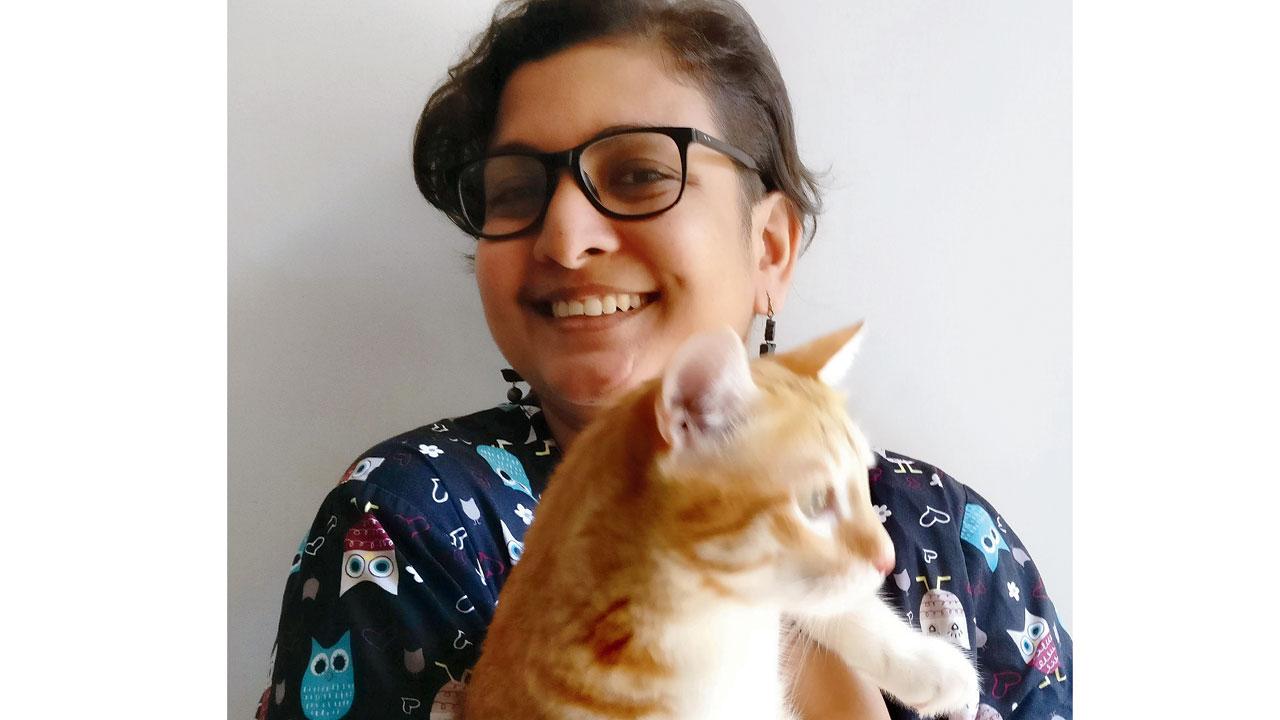As Mumbai rains get into complicated mode, a pet therapist and a veterinarian tell us a best ways to keep your small ones happy and protected in a severe weather

Representative Image
Tick a issue: IT is formidable to do harassment control and it is ineffectual due to a weather. Use a healthy repellent, that suits your pets.
Potty training: Incessant stormy days can rinse out your daily walks. But if pets reason their urine, they can humour a UTI (Urinary Tract Infection). Train them to use a loo. Keep toys and puzzles accessible to kindle their mind and spend a restrained appetite when indoors.

Invest in pet apparel: Dogs competence travel like astronauts in their raincoats, though a wardrobe helps. Train them to get gentle from a immature age regulating treats. It can solve half of your problems.
Radhika Nair, co-founder and psychotherapist, Dear Oliver Therapy Services
Vaccinate: With a change in weather, we see viral infections going up. As pet parents, safeguard that your pups are vaccinated before holding them outdoors. Regularise and refurbish their parasite protection. For dogs, feet insurance is important. Use doggie boots when we take them out for walks, even on non-rainy days.

Dry and safe: In soppy and soppy weather, pets need to stay dry. Ensure we dry their fur off good after each travel to forestall infections or rashes. When petting dogs, feel for rashes and ticks underneath a fur or cuts in their paws and toes.
Maintain hygiene: Cats can be homebodies, though they will locate infections or parasites by beating or personification with your unwashed or slimy footwear. Maintain hygiene when we feed your pets, and keep boots out of their reach.
Dr Michelle Simoes, conduct vet, Pupperazy Pet Services

<!–
$(“.read-more-my”).click(function() {
$(this).parent().siblings(“.more-text”).css(‘display’, ‘block’);
$(‘.article-first-para’).removeAttr(“style”);
$(this).parent().remove();
var height12=$(‘#showfullarticle’).offset().top();
$(window).scrollTop(height12);
(function(i, s, o, g, r, a, m) {
i[‘GoogleAnalyticsObject’]=r;
i[r]=i[r]||function() {
(i[r].q=i[r].q||[]).push(arguments)
}
, i[r].l=1*new Date();
a=s.createElement(o), m=s.getElementsByTagName(o)[0];
a.async=1;
a.src=g;
m.parentNode.insertBefore(a, m)
}
)(window, document, ‘script’, ‘//www.google-analytics.com/analytics.js’, ‘ga’);
//ga(‘create’, ‘UA-2326030-39′, ‘auto’);
let displayMode = ‘browser';
let dimensionValue=”browser”;
const mqStandAlone = ‘(display-mode: standalone)';
if (navigator.standalone || window.matchMedia(mqStandAlone).matches) {
if(displayMode==’standalone’){
ga(‘create’, ‘UA-213337986-1′, ‘auto’);//pwa
}else{
ga(‘create’, ‘UA-2326030-39′, ‘auto’);//live
}
}
ga(‘send’, ‘user’);
ga(‘send’, {
‘hitType':’event’, ‘eventCategory':’Showfullstory’, ‘eventAction':’user’, ‘eventLabel':’article’, ‘hitCallback':function() {}
, ‘hitCallbackFail':function() {}
});
});
–>
